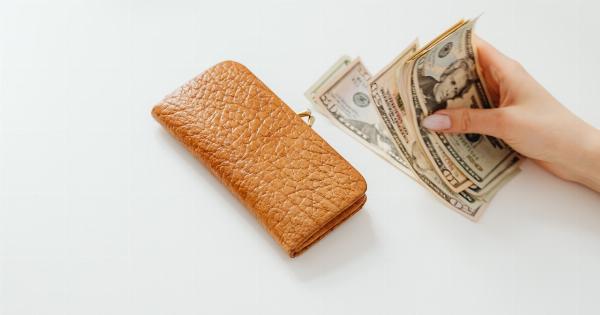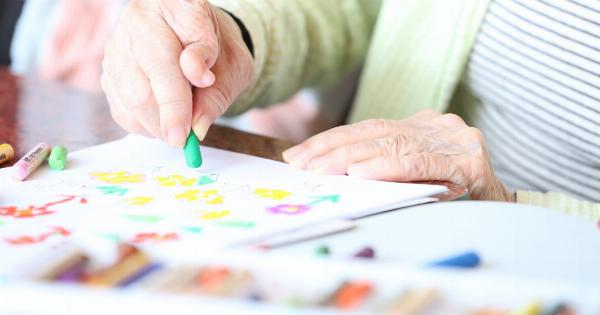A wallet is an essential accessory that many people carry with them every day. It serves as a repository for cash, credit cards, identification cards, and various other items.
However, an overstuffed wallet can cause not only discomfort but also pain and injury. In this article, we will explore how carrying around a heavy and bulky wallet can negatively impact your health and provide solutions to avoid such issues.
The Dangers of an Overstuffed Wallet
Carrying an overstuffed wallet can lead to several health-related problems. Let’s take a closer look at some of the common issues that can arise from this seemingly harmless habit.
1. Back and Hip Pain
An overloaded wallet can place unnecessary strain on your back and hips. When you sit for an extended period with an overstuffed wallet in your back pocket, it disrupts the alignment of your spine and pelvis.
This misalignment can trigger discomfort in the lower back and hips, leading to chronic pain over time.
2. Nerve Compression
An overstuffed wallet can compress the sciatic nerve, which runs down the lower back, hip, buttocks, and legs. This compression can result in a condition known as sciatica, characterized by sharp pain, numbness, and tingling sensations.
If left untreated, sciatica can severely impact your mobility and overall quality of life.
3. Postural Imbalances
Carrying an overstuffed wallet can disrupt your posture. The weight and bulk of the wallet on one side of your body can cause imbalance and misalignment in your spinal column.
Over time, this can lead to postural imbalances, which may result in muscular strain, joint problems, and even skeletal issues.
4. Leg Length Discrepancy
In extreme cases, an overloaded wallet can contribute to leg length discrepancy, a condition where one leg appears longer than the other.
The weight of the wallet placed repeatedly on the same side can lead to a tilt in your pelvis, causing one leg to bear more weight and appear shorter. Leg length discrepancy can cause gait abnormalities and further exacerbate back and hip pain.
5. Increased Risk of Pickpocketing
Carrying a bulging wallet in your back pocket not only poses a risk to your physical health but also makes you a target for pickpockets.
An overstuffed wallet is more likely to be noticed and attempted to be stolen, putting your financial security at risk.
Preventing Pain and Injury
Luckily, there are several strategies you can adopt to prevent the pain and injury caused by an overstuffed wallet. Let’s explore some practical solutions:.
1. Opt for a Minimalist Wallet
Consider downsizing to a minimalist wallet that can hold just the essentials. These slim wallets are designed to reduce bulk and keep your pocket light.
By paring down your wallet to only the necessary items, you can significantly reduce the strain on your body.
2. Regularly Declutter Your Wallet
Make it a habit to declutter your wallet regularly. Remove receipts, old cards, and any unnecessary items that add weight. This simple act not only lightens your wallet but also ensures that you only carry what you truly need.
3. Alternate Pocket Placement
Instead of consistently placing your wallet in the same pocket, alternate between your back and front pockets. By switching sides regularly, you can distribute the burden of the wallet more evenly, reducing the strain on one side of your body.
4. Carry a Bag or Use a Money Clip
If you find yourself frequently carrying many items, consider using a bag or briefcase instead of putting everything in your wallet.
Alternatively, you can use a money clip to hold cash and a few cards separately, eliminating the need for a bulky wallet altogether.
5. Use Mobile Payment Methods
In today’s digital age, mobile payment methods are becoming increasingly prevalent. Consider using your smartphone or smartwatch to make payments instead of relying solely on physical cards and cash.
This not only lightens your load but also provides added security measures.
6. Be Mindful of Your Sitting Habits
When sitting for long periods, such as during a car or plane journey, remove your wallet from your pocket. Placing it in a bag or on a nearby surface can prevent the compression of nerves and misalignment of your spine.
7. Strengthen Your Core Muscles
Building a strong core can help support your spine and alleviate the strain caused by an overloaded wallet. Engage in regular exercises that target your core, such as planks, abdominal crunches, and yoga poses like the bridge pose and cat-cow stretch.
Conclusion
While it may seem innocuous, an overstuffed wallet can have detrimental effects on your health and overall well-being.
By recognizing the dangers of carrying an overloaded wallet and implementing the preventive measures outlined in this article, you can significantly reduce the risk of pain and injury. Embrace minimalist wallet designs, declutter regularly, and be mindful of your sitting habits to ensure a fully pain-free pocket.




























